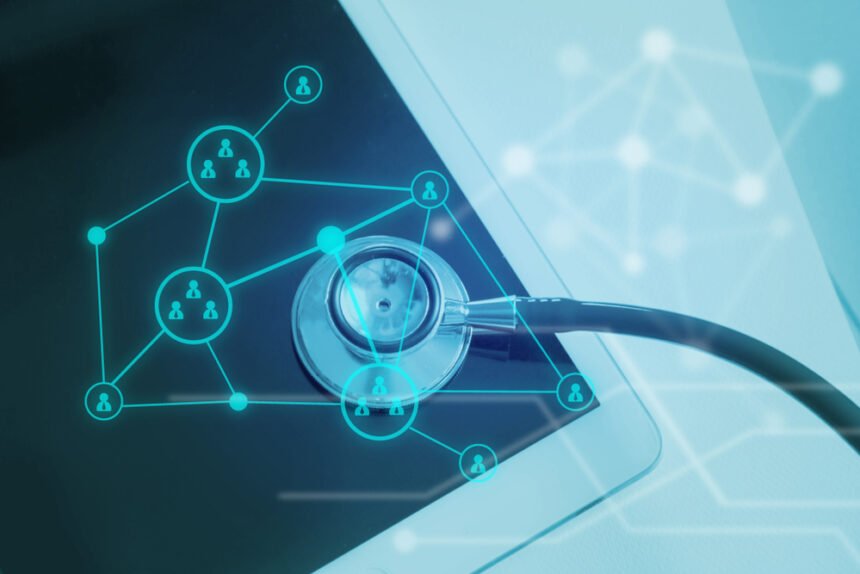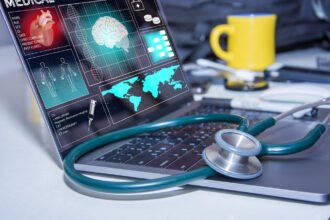In the ever-evolving healthcare industry, technology plays a pivotal role in driving innovation and improving patient outcomes. One of the key aspects of this transformation is healthcare software development.
As we navigate the complexities of modern healthcare, the development of cutting-edge software is instrumental in enhancing efficiency, accuracy, and overall quality of care.
In this article, we’ll go over the technological phenomenon and its many advantages, with special emphasis on how it could improve patient care.
The Current Landscape
Healthcare software development has come a long way from its humble beginnings. Initially, it was primarily focused on digitizing patient records to streamline administrative tasks. However, as the industry recognized the immense potential of technology, the scope of healthcare software has expanded exponentially. Software localization is a critical aspect of healthcare software development, ensuring that the application is accessible and usable across different regions and cultures
Today, healthcare software development encompasses a broad spectrum of applications, from electronic health records (EHR) to telemedicine platforms, medical imaging software, and patient management systems. The innovations are making healthcare more accessible and are also revolutionizing the way medical professionals deliver care.
Interoperability and Seamless Integration
One of the key challenges in healthcare has been the lack of interoperability among different software systems.
In an ideal healthcare ecosystem, information should seamlessly flow between different applications and devices, ensuring that healthcare professionals have a comprehensive view of a patient’s medical history.
Such interconnectibility would require a concerted effort in healthcare software development. The first step in that direction is to create standards and protocols that facilitate interoperability.
Developers are working on creating application programming interfaces (APIs) that allow different software systems to communicate effectively.
Interoperability is critical for the exchange of information. It also enhances the overall efficiency of healthcare processes. For example, a patient’s prescription information from an electronic health record system should seamlessly integrate with a pharmacy’s software to ensure accurate medication dispensing.
Artificial Intelligence (AI) and Machine Learning (ML)
The integration of artificial intelligence and machine learning into healthcare software development is a game-changer. These technologies have the potential to analyze vast amounts of data quickly, providing valuable insights for both diagnosis and treatment.
AI-driven applications can assist healthcare professionals in identifying patterns in patient data, predicting potential health issues, and personalizing treatment plans. Machine learning algorithms can analyze medical imaging data to detect anomalies or assist in the early diagnosis of diseases such as cancer.
Moreover, AI is increasingly being used in chatbots and virtual health assistants, enhancing patient engagement and providing timely information. These advancements can improve the efficiency of healthcare delivery. Additionally, better access to healthcare could also empower patients to take a more proactive role in managing their health.
Innovative Technologies
The healthcare industry is experiencing a transformative shift towards the future, propelled by emerging technologies.
Telemedicine
Telemedicine stands out as a pivotal technology in healthcare, gaining increased significance, especially in the wake of the pandemic.
Telemedicine encompasses technologies that enable doctors to remotely attend to patients through mobile devices or computers. The three primary telemedicine services include remote monitoring, store-and-forward, and real-time interactive services.
As per GlobalMed, 74% of millennials prefer telehealth visits over in-person doctor exams. The expanded use of telemedicine holds the potential to extend medical services to individuals residing in remote areas.
The advancements in healthcare technologies, such as telemedicine and telehealth, have sparked optimism about the future of healthcare.
Wearable Technology
Wearable technology, comprising electronic devices designed to be worn, is making inroads into the healthcare sector, introducing a novel dimension.
Various types of wearable technology are now employed for health-related purposes, including smartwatches, smart jewelry, fitness trackers, and implantable devices.
These wearable devices continuously gather exercise and physical data in real-time, utilizing motion sensors to capture daily activities. The collected information can be synchronized with laptops and mobile devices.
This facilitates a shift towards preventive healthcare, allowing doctors to focus on preventive measures rather than curative ones, and empowers patients to monitor their health in real-time, reducing the need for frequent hospital visits.
Anticipate a significant surge in wearable technology trends in the upcoming year.
Internet of Medical Things (IoMT)
The healthcare sector is experiencing a profound transformation with the integration of the Internet of Medical Things (IoMT).
IoMT involves the integration of software applications and medical devices that can connect to healthcare information technology systems through networking technologies. By providing real-time health monitoring and patient data, IoMT applications aim to enhance patient care significantly.
The information gathered through IoMT is invaluable for healthcare stakeholders, improving patient experiences and enabling providers to make enhancements while increasing revenue opportunities.
Although its adoption in healthcare is relatively recent, trends in the Internet of Medical Things are on a steady rise.
Cybersecurity and Data Privacy
As healthcare software becomes more prevalent, the need for robust cybersecurity measures is paramount. The digitization of patient records and the exchange of sensitive medical information require airtight security protocols to protect against data breaches and cyber threats.
Healthcare software developers are investing heavily in implementing advanced encryption methods, multi-factor authentication, and secure cloud storage solutions.
Additionally, adherence to strict data privacy regulations, such as the Health Insurance Portability and Accountability Act (HIPAA), is a non-negotiable aspect of healthcare software development.
Ensuring the security and privacy of patient information not only builds trust among patients but also safeguards the integrity of the healthcare system as a whole.
User-Centric Design
The effectiveness of healthcare software is contingent on its usability and accessibility. Developers are increasingly adopting a user-centric design approach to create software that is intuitive and user-friendly for both healthcare professionals and patients.
User-centric design involves gathering feedback from end-users and incorporating it into the development process. This approach ensures that software interfaces are easy to navigate, reducing the learning curve for healthcare professionals and enhancing patient engagement.
The Road Ahead
As we look to the future of healthcare software development, the possibilities are both exciting and challenging. Emerging technologies, regulatory changes, and evolving healthcare needs will continue to shape the trajectory of software development in the industry.
Collaboration among stakeholders, including developers, healthcare providers, regulators, and patients, is crucial in navigating this dynamic landscape.
Open communication and a shared commitment to improving healthcare through technology will drive the development of innovative solutions that address the unique challenges of the healthcare industry.
In conclusion, healthcare software development is at the forefront of shaping the future of healthcare. Through interoperability, AI and ML integration, cybersecurity measures, user-centric design, and ongoing collaboration, developers are paving the way for a more efficient, patient-centered, and technologically advanced healthcare system.
As we embrace these advancements, we move closer to a future where healthcare is not only accessible but also optimized for better outcomes and improved quality of life.









